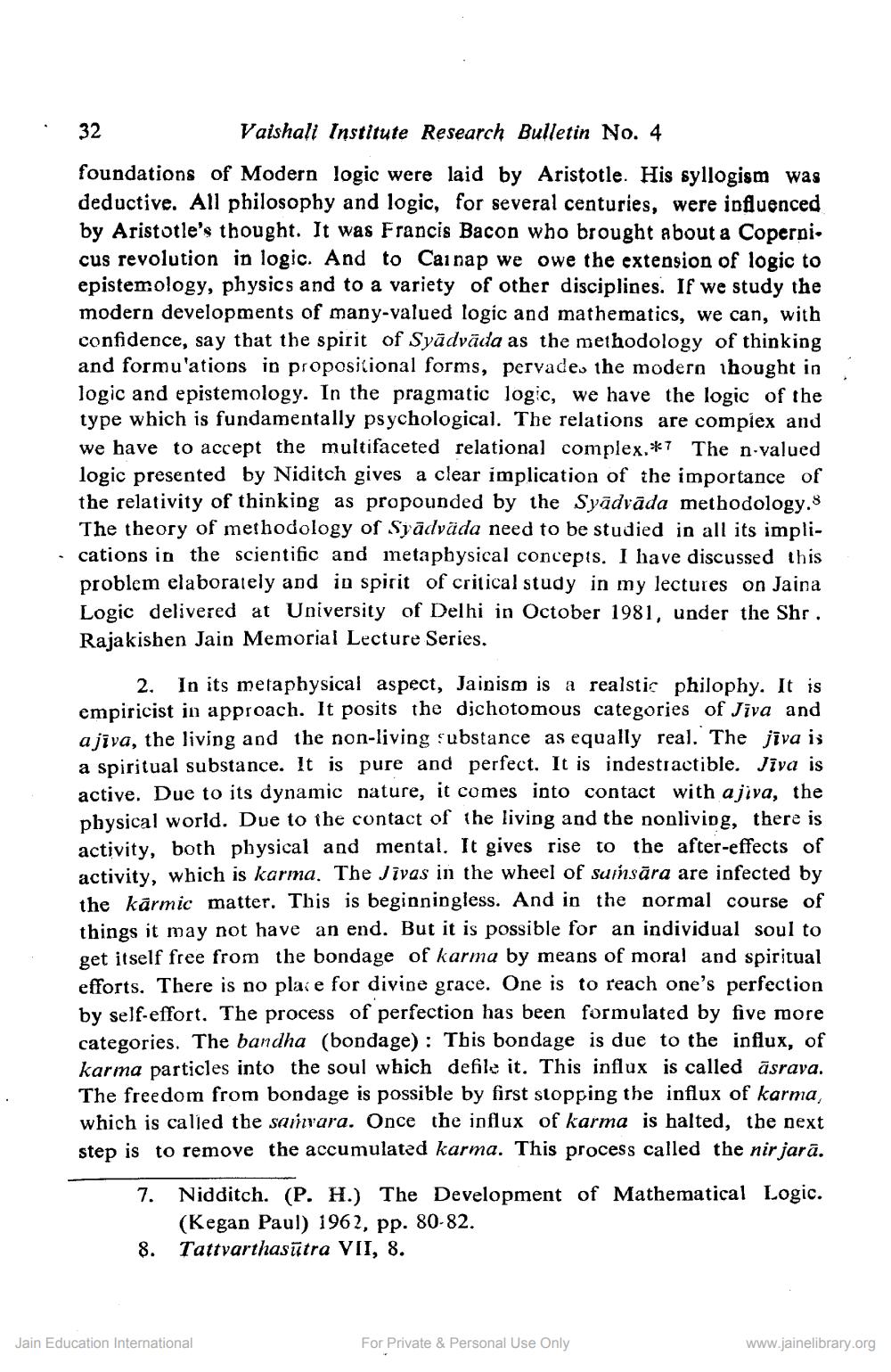________________
32
Vaishali Institute Research Bulletin No. 4
foundations of Modern logic were laid by Aristotle. His syllogism was deductive. All philosophy and logic, for several centuries, were influenced by Aristotle's thought. It was Francis Bacon who brought about a Coperni. cus revolution in logic. And to Cai nap we owe the extension of logic to epistemology, physics and to a variety of other disciplines. If we study the modern developments of many-valued logic and mathematics, we can, with confidence, say that the spirit of Syādvāda as the methodology of thinking and formulations in propositional forms, pervades the modern hought in logic and epistemology. In the pragmatic logic, we have the logic of the type which is fundamentally psychological. The relations are complex and we have to accept the multifaceted relational complex,*7 The n-valued logic presented by Niditch gives a clear implication of the importance of the relativity of thinking as propounded by the Syâdvāda methodology.8 The theory of methodology of Syādvāda need to be studied in all its implications in the scientific and metaphysical concepts. I have discussed this problem elaborately and in spirit of critical study in my lectures on Jaina Logic delivered at University of Delhi in October 1981, under the Shr. Rajakishen Jain Memorial Lecture Series.
2. In its metaphysical aspect, Jainism is a realstic philophy. It is empiricist in approach. It posits the dichotomous categories of Jiva and a jīva, the living and the non-living substance as equally real. The jiva is a spiritual substance. It is pure and perfect. It is indestractible. Jiva is active. Due to its dynamic nature, it comes into contact with ajiva, the physical world. Due to the contact of the living and the nonliving, activity, both physical and mental. It gives rise to the after-effects of activity, which is karma. The Jivas in the wheel of suinsāra are infected by the karmic matter. This is beginningless. And in the normal course of things it may not have an end. But it is possible for an individual soul to get itself free from the bondage of karma by means of moral and spiritual efforts. There is no place for divine grace. One is to reach one's perfection by self-effort. The process of perfection has been formulated by five more categories. The bandha (bondage) : This bondage is due to the influx, of karma particles into the soul which defile it. This influx is called äsrava. The freedom from bondage is possible by first stopping the influx of karma, which is called the sainara. Once the influx of karma is halted, the next step is to remove the accumulated karma. This process called the nir jarā.
7. Nidditch. (P. H.) The Development of Mathematical Logic.
(Kegan Paul) 1962, pp. 80-82. 8. Tattvarthasūtra VII, 8.
Jain Education International
For Private & Personal Use Only
www.jainelibrary.org




